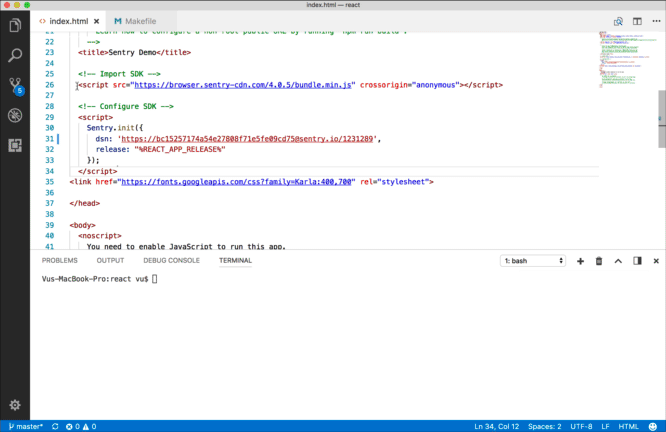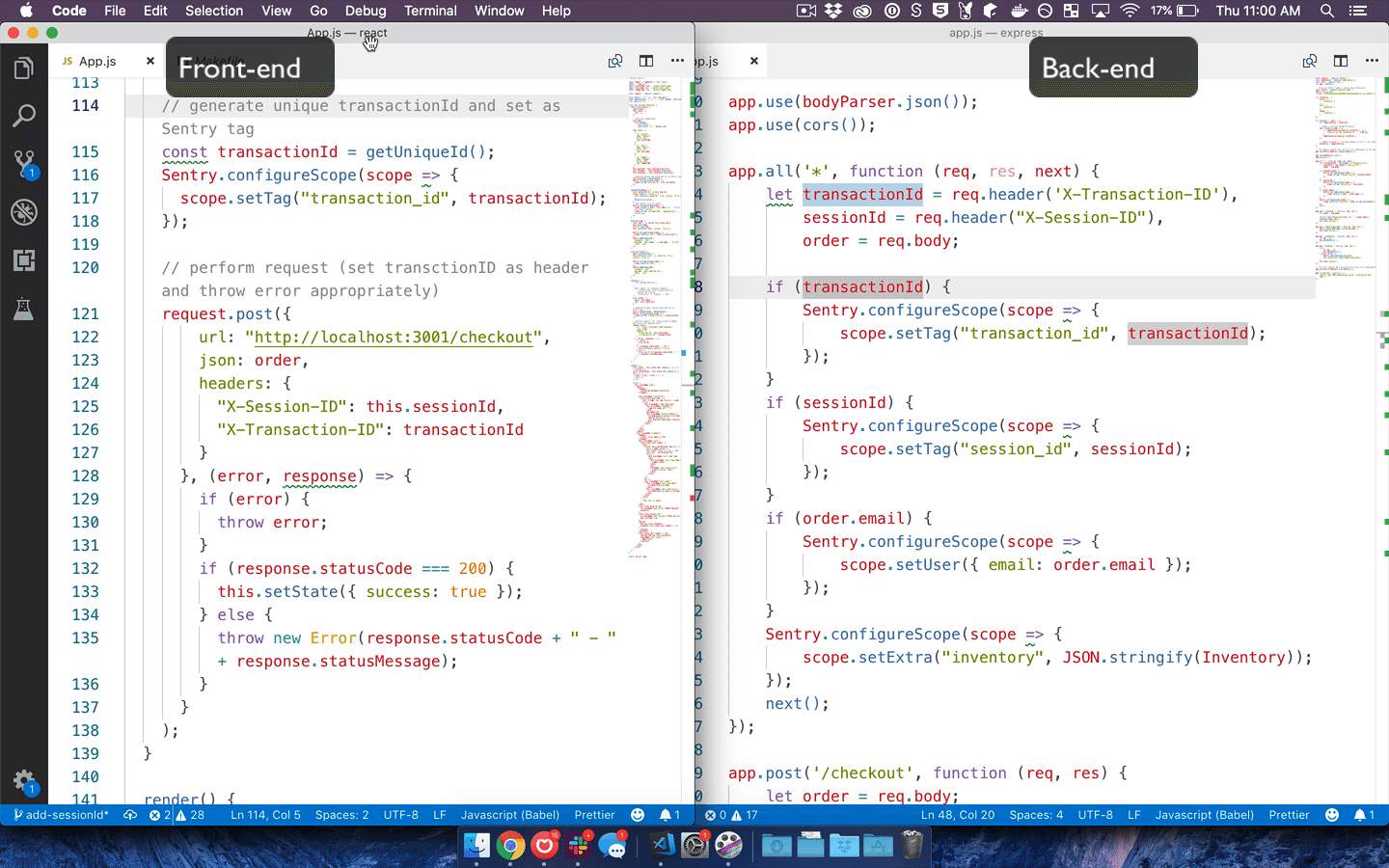Show how Sentry works
- Import/Integrate
- Configuration
- Releases/SourceMaps/Commits
- Session + Transcation Tracing (correlate errors across FE, BE, etc.)
- Use the nvmrc file to set a compatible node version.
nvm use
- Install dependencies
npm install
- Configure Sentry with your
PUBLIC_DSN_KEYin index.html - Remember to include your
SENTRY_AUTH_TOKEN; you'll need to generate one first from your Sentry server. After doing so, a cheap and easy way to use the token would be this:export SENTRY_AUTH_TOKEN=1010101011010101 - Make sure that your Github repo is integrated into your Sentry organization.
- Enter your Sentry organization slug in the
SENTRY_ORGline of your Makefile, then add the name ofSENTRY_PROJECT
$ npm run deploy
- Go to http://localhost:5000 in your browser and begin throwing errors/events to Sentry!

